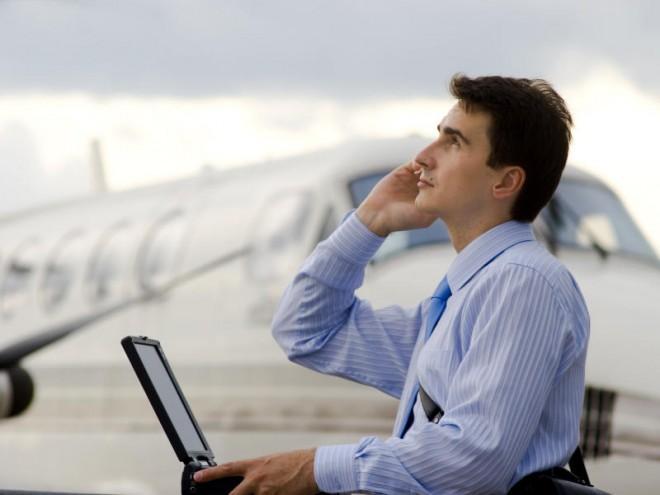In a recent survey conducted by accommodation booking website Booking.com, 93% of American business travelers said they are under stress when traveling to other countries. The survey was based on responses from 4,555 people who had traveled internationally for business four times or more in the last year.
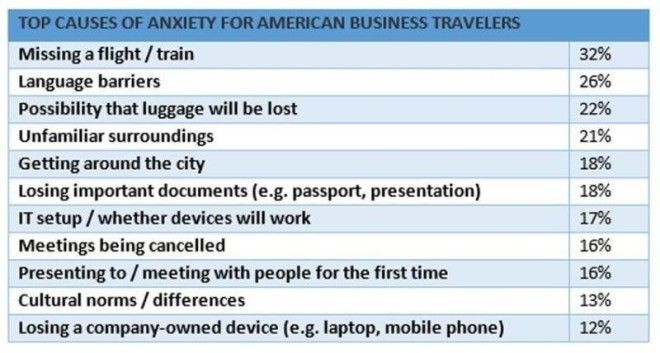
Based on these findings, Booking.com teamed up with Elaine Swann, an etiquette expert who specializes in tools and practical tips for business travelers. We spoke to Swann, who also worked as a flight attendant for 10 years, to find out her best advice for how business travelers can beat stress.
Prep when packing.
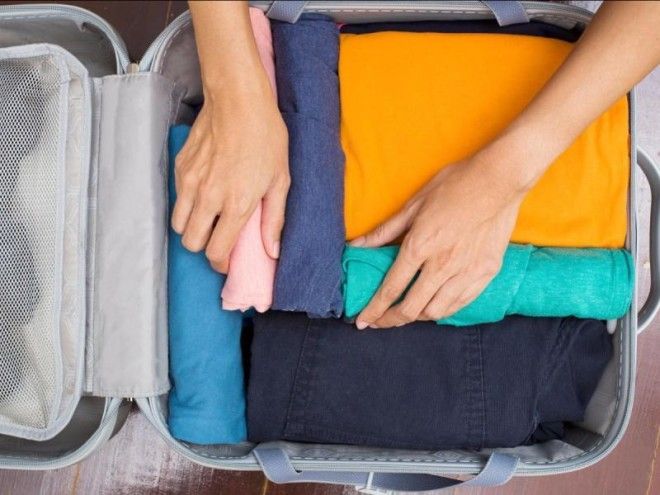
To avoid the pains of lost luggage, Swann recommends keeping at least one emergency outfit for yourself in a carry-on. She also recommends that you make copies of all of your travel information and store them in a folder that you carry with you.
Not only will these written documents come in handy if your luggage gets lost, but they also ensure that you have a backup option if you don't have access to the Internet.
Pack starting with larger pieces.
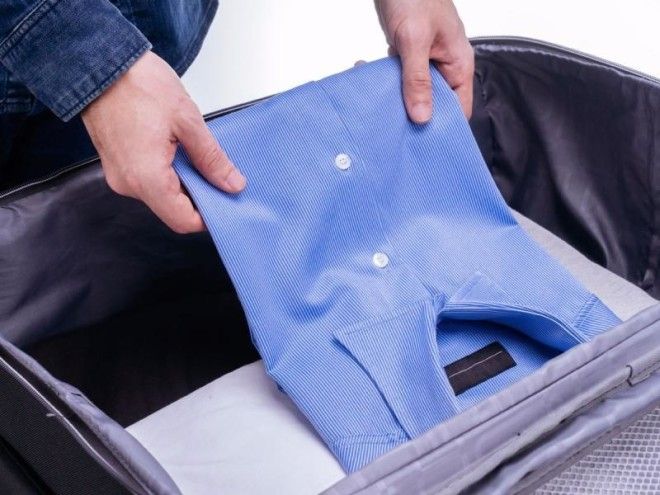
Some people prefer to roll their clothing when packing, while others prefer folding. If you're folding your clothes, Swann recommends starting with the largest pieces first and laying them out to do as little folding as possible.
This stacking method allows you to fit more items in without wrinkling them. You should also ensure that you pack your suit in the right way.
Pack your electronic devices and cables in plastic bags.
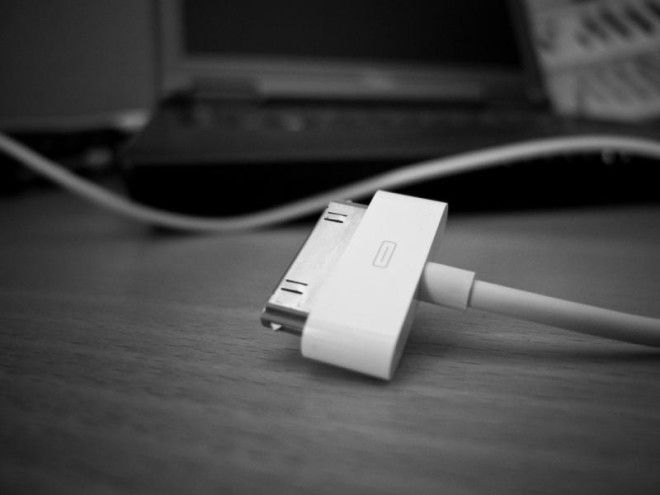
Packing your electronic devices and cables in a plastic bag and packing them as the last layer of items in your luggage can help save you time when you go through airport security.
According to Swann, when items are strewn about, it can take the TSA longer to identify your items and make sure that they're allowed.
Having them neatly separated makes it easier to quickly pull these items out if they need further inspection.
Scope out a hotel's amenities.
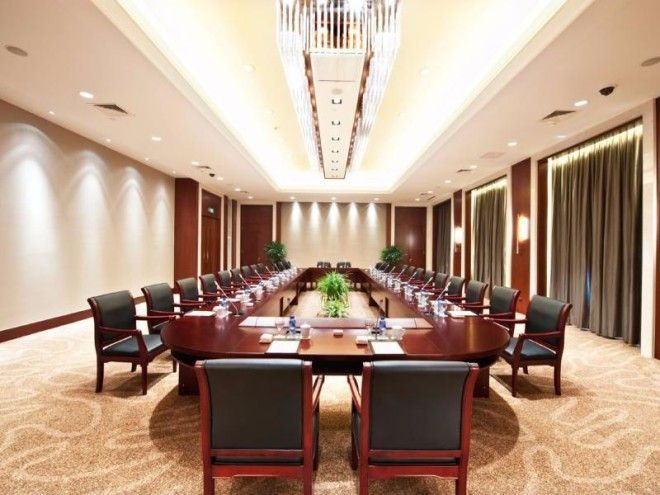
It's crucial that travelers look into what amenities a hotel offers.
This not only includes tapping into the free amenities they offer, but also means asking whether a hotel has work-related resources, like a business center, meeting rooms, printers, fax machines, or free Wi-Fi.
"Your goal is to make an office away from the office, so it's important to know this information in advance to work out your travel plans," Swann said.
Look into discounts your hotel can get you.
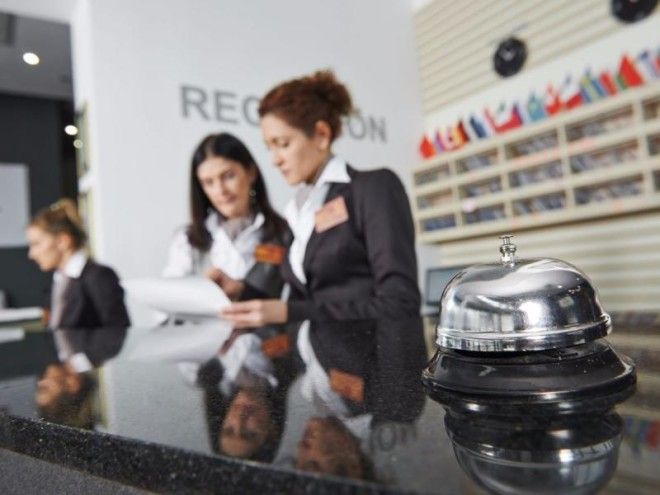
Many hotels offer a discounted happy hour service, while other hotels will provide special discounts for frequent travelers. Swann recommends booking experiences through the concierge, since they can often get access to free tickets or discounts you might not otherwise get.
Don't be afraid to ask about free items on your flight.
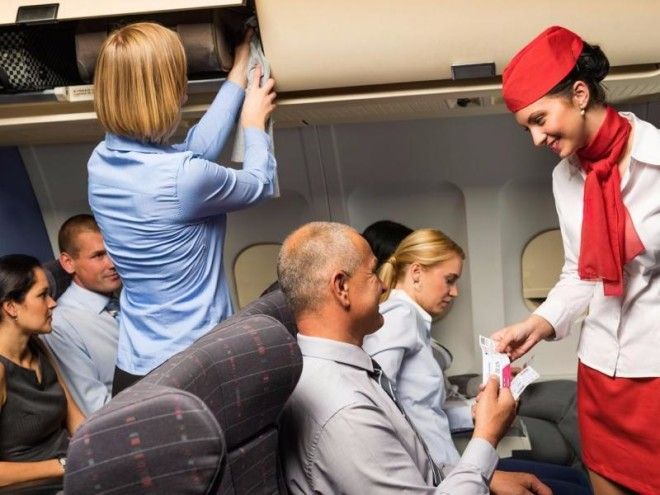
While airlines do offer a variety of free items that can range from amenity kits to games, Swann says that customers often don't know to ask for them. The items aren't necessarily advertised, which is why Swann recommends that you politely ask a flight attendant when they aren't busy.
Similarly, don't be afraid to ask to switch your seat.
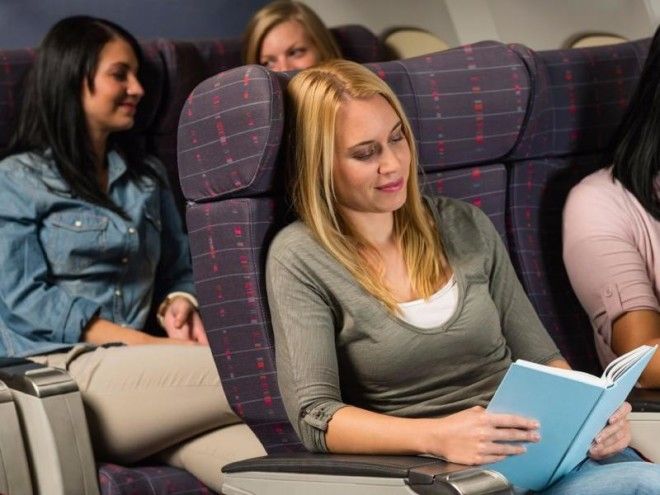
Getting stuck in an awful seat during the flight does sometimes happen, but you don't necessarily need to stick it out the entire trip. Swann said that flight attendants will often have no problem moving your seat for you, as long as the plane has some open rows. She added that people often feel like they aren't allowed to ask about this, but it can sometimes prove successful when the space is available.
When you're at the airport, look for lines on your left.
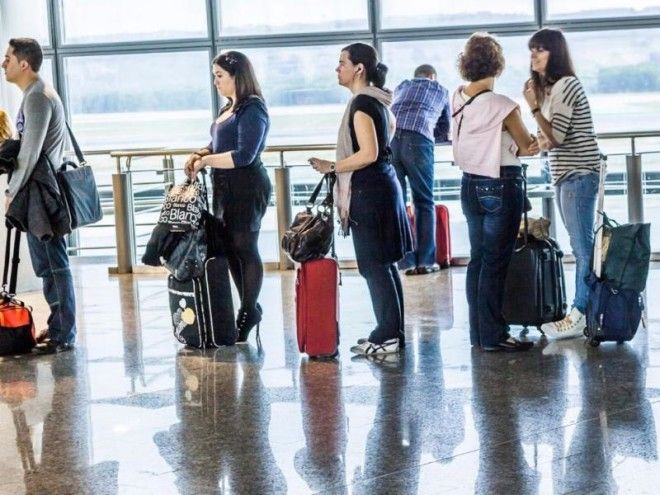
If you want to save as much time as possible at the airport, snagging a spot in a shorter line can help.
Swann recommends looking for lines on your left side as opposed to your right. Studies have shown that Americans are more likely to turn right than left when they enter a building, which sometimes means that lines on the left will be shorter.
Let a flight attendant know if you might miss your connecting flight.
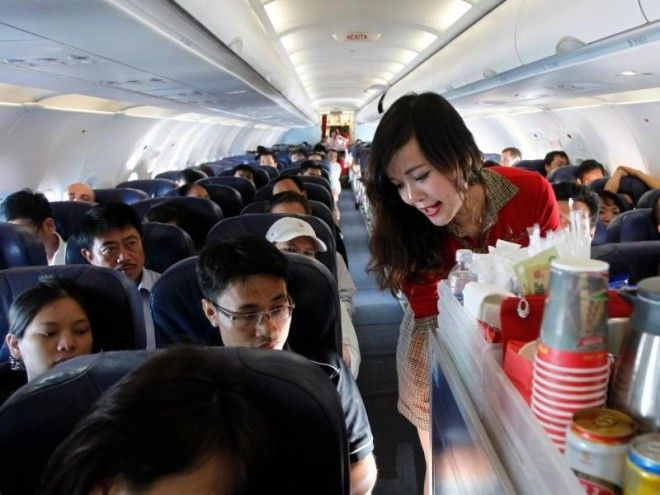
Instead of panicking to get
Advertising
Take advantage of airport lounges.
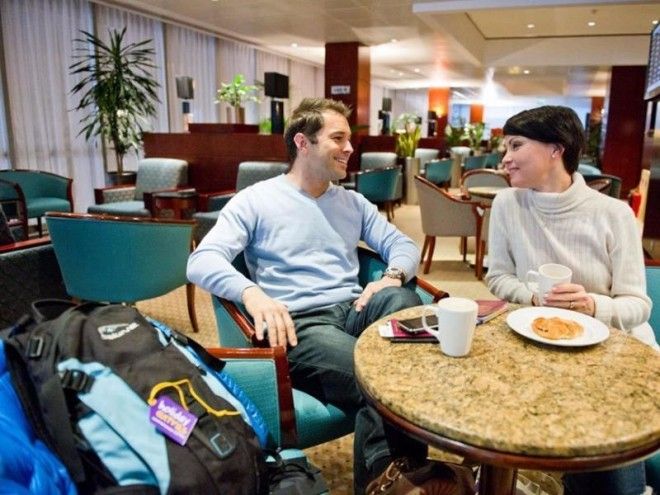
Whether you happen to have spare time in between flights or are dealing with a delay, airport lounges are a great place to unwind or get some extra work done.
Most lounges sell day passes, but you can also get a Priority Pass ($99 to $399 a year), which gives you access to 850 airport lounges around the world. You should also check the terms of your credit card to see whether or not it gives you lounge access. Some, like American Express Platinum, have access to Delta and Centurion lounges.
Download Google Maps.
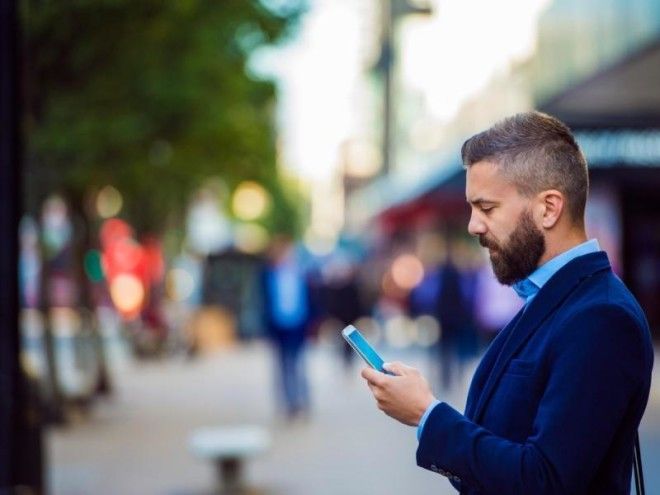
The one app Swann recommends every business traveler have is Google Maps. She finds the app to be the most up-to-date in terms of terrain and traffic updates. You also have offline capabilities with their maps, which can help tremendously when traveling without an Internet connection.
We also recommend CityMaps, an app that allows users to see detailed offline maps that offer integrated navigation.
Pre-order your room service.

Traveling for business can often mean a busy schedule, so it helps to avoid having to wait around for your meal. Swann recommends that you look into hotels that offer the ability to pre-order room service. Hotel chains like Marriott and Omni Hotels & Resorts will even give you an estimated delivery time.
Read up on hand gestures.

When it comes to conducting business meetings and interactions in other countries, Swann urges travelers to research what various hand gestures mean in the countries they are traveling to.
While a gesture might convey a certain message in one country, it might mean the opposite in another. For example, in Ireland and Australia, making a peace sign with your palm facing inward (or a V sign), is equivalent to using the middle finger in the US, so you want to be careful not to send the wrong message.
Avoid using slang.

Similarly, Swann warns business travelers to try and avoid using any slang terms or phrases, as they might not necessarily translate the same way in other countries. Even certain words that have a specific meaning in America can vary drastically in other parts of the world.
Check reviews from fellow business travelers.

While this might seem obvious, Swann recommends doing your research thoroughly, because you want your trip to go as efficiently as possible. Swann says that reviews and tips from fellow business travelers on social media and travel booking websites can be one of the best places to start.
